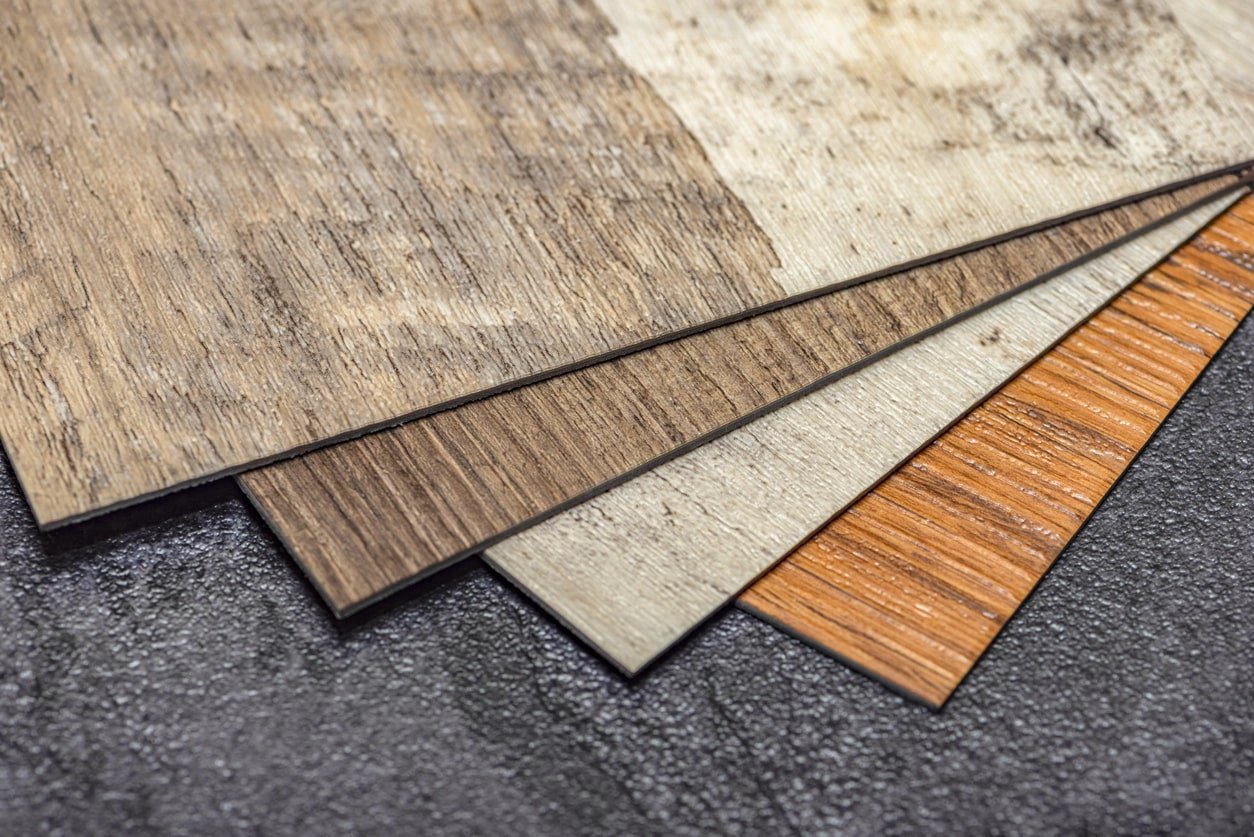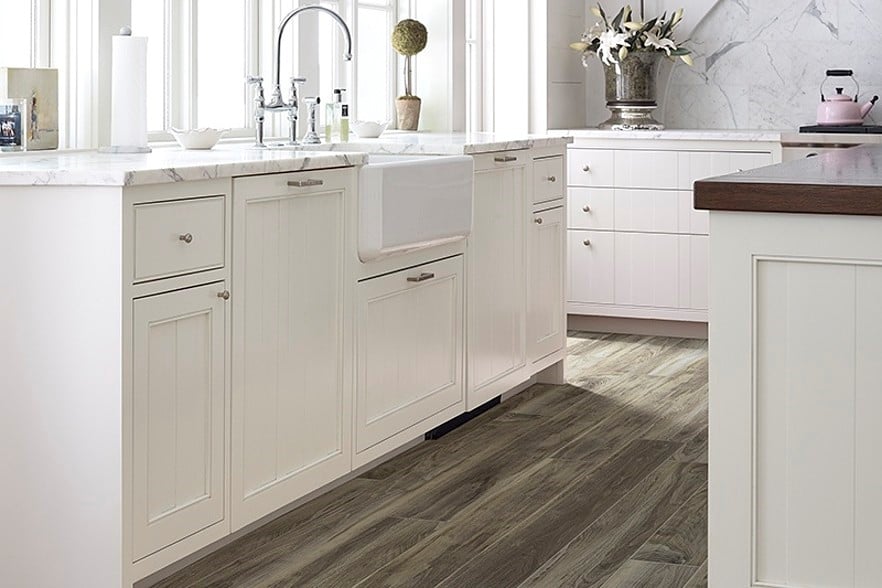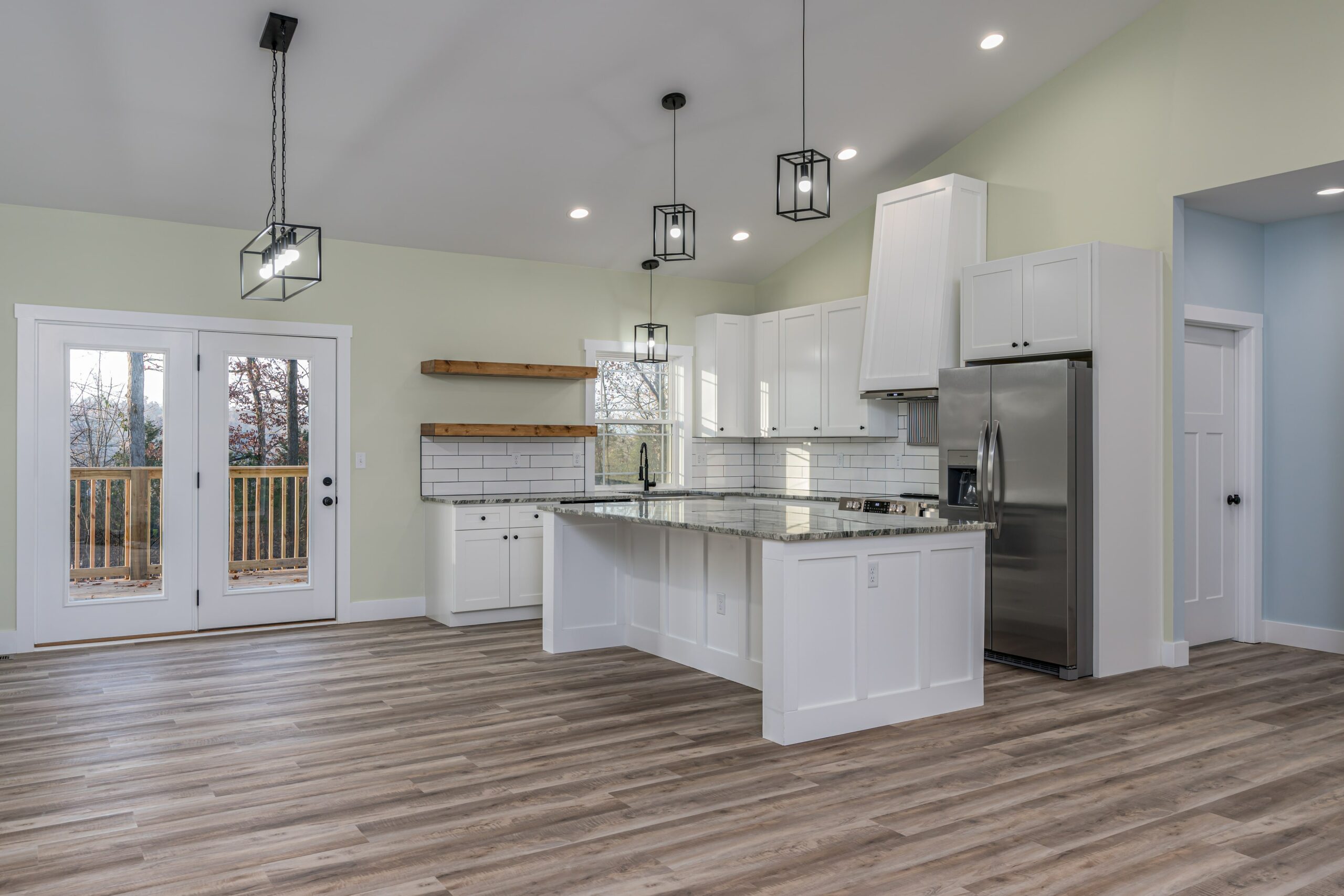Vinyl flooring is not completely fireproof, but it does offer a level of fire resistance. It’s designed to be fire-resistant but not fireproof. It helps reduce the spread of fire, providing more time for evacuation and fire control.
- Composition: Vinyl flooring is made from polyvinyl chloride (PVC), which inherently has some fire-resistant properties.
- Fire Retardant Additives: Manufacturers often add fire retardant chemicals to vinyl flooring to enhance its fire resistance.
- Fire Resistance Standards: Vinyl flooring typically meets industry fire resistance standards such as ASTM E648 and EN 13501-1, indicating it performs well in fire resistance tests.
- Performance: Compared to materials like hardwood and carpet, vinyl flooring is less likely to ignite and spread flames rapidly.
- Limitations: While it resists ignition and slows down the spread of fire, vinyl flooring can still emit toxic fumes when it burns.


Importance of Fire-Resistant Materials in Building Safety
Using fire-resistant materials in construction helps to prevent the spread of fire, giving time for evacuation and minimizing damage. These materials are especially important in flooring, as they cover large areas and are often in direct contact with potential fire sources.
Composition of Vinyl Flooring
Materials Used in Manufacturing Vinyl Flooring
Vinyl flooring is primarily made from polyvinyl chloride (PVC), along with additives that enhance its durability, flexibility, and appearance. The composition typically includes stabilizers, plasticizers, pigments, and fillers.
How These Materials Affect Fire Resistance
PVC is inherently resistant to fire due to its chlorine content, which helps to reduce the spread of flames. However, to further enhance its fire resistance, manufacturers often add fire retardant chemicals. These additives can help to prevent ignition and slow the spread of fire.


Fire Resistance Properties of Vinyl Flooring
General Fire Resistance Capabilities of Vinyl Flooring
Vinyl flooring offers moderate fire resistance. It does not ignite easily and burns slowly, which helps to contain the spread of fire. But when it does burn, it can produce smoke and toxic fumes, which is a consideration for safety.
Fire-Retardant Additives Used in Vinyl Flooring
Manufacturers add fire retardants to vinyl flooring to improve its fire resistance. These chemicals work by promoting char formation, which acts as a barrier to slow down the burning process, and by releasing water or inert gasses that help to cool the material and reduce flame spread.


Comparison with Other Flooring Materials


Testing and Standards for Fire Resistance
Fire resistance testing involves exposing flooring materials to flames and heat to observe their reaction, including ignition, flame spread, and smoke production. Common tests include the ASTM E648, which measures the critical radiant flux of flooring systems.
How Vinyl Flooring Measures Up to These Standards
Vinyl flooring generally performs well in these tests, often achieving a Class 1 rating in the ASTM E648 test.


Factors Affecting Fire Resistance
Thickness and Density of the Vinyl Flooring
Thicker and denser vinyl flooring tends to offer better fire resistance, as it takes longer for flames to penetrate and spread.
Installation Method
The method of installation, whether glue-down or floating floor, can impact fire resistance. Glue-down installations tend to be more stable and less prone to lifting or warping under heat.
Presence of Additional Protective Layers or Coatings
Some vinyl flooring products come with additional protective layers that enhance their fire resistance by providing an extra barrier against flames and heat.




Benefits of Fire-Resistant Vinyl Flooring
- Fire-resistant vinyl flooring helps prevent the rapid spread of fire, providing time for occupants to evacuate and for emergency responders to arrive.
- Using fire-resistant materials can lower insurance premiums and ensure compliance with local building codes, which often require certain fire resistance standards for flooring.
- Fire-resistant vinyl flooring is also durable and easy to maintain, offering long-term value and peace of mind for property owners.
Limitations and Considerations
While vinyl flooring is suitable for many applications, it may not be the best choice for areas with high heat exposure, such as near fireplaces or industrial settings with high fire risks.
Balance Between Fire Resistance and Other Desired Flooring Properties
Choosing the right flooring involves balancing fire resistance with other factors such as aesthetics, cost, and durability.




















